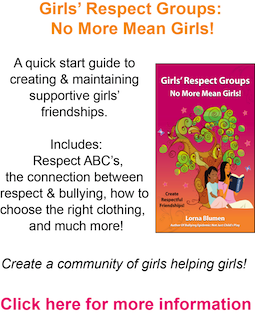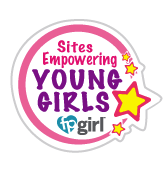By Guest Blogger: Anne Rucchetto
Online socializing has become an integral part of daily life, for everyone from elementary school kids to retired seniors. We can socialize and connect online in ways that are more available, accessible, and varied than ever. Websites such as Facebook, Twitter, Instagram, and Tumblr provide a platform for our thoughts and experiences in real time, through text, photographs, and videos. The American Academy of Pediatrics reports that 22% of teens use their favorite social media site more than 10 times a day and 75% have their own cell phones.
socializing has become an integral part of daily life, for everyone from elementary school kids to retired seniors. We can socialize and connect online in ways that are more available, accessible, and varied than ever. Websites such as Facebook, Twitter, Instagram, and Tumblr provide a platform for our thoughts and experiences in real time, through text, photographs, and videos. The American Academy of Pediatrics reports that 22% of teens use their favorite social media site more than 10 times a day and 75% have their own cell phones.
This freedom to express ourselves with our friends, anytime, anywhere, has many positive aspects. The American Psychological Association reports some of the advantages of social media:
- Helping teens and adolescents in difficult times through supportive networks that show “virtual empathy”
- Allowing shy teens and adolescents the ability to express themselves and socialize in a sphere where they feel more comfortable
- Providing compelling learning resources for students with the school’s participation
There are also risks, particularly when social media is used to excess. According to the APA, excessive social media use can increase the risk of anxiety, depression, narcissism, and other mental health disorders. Fearing the judgment of our peers combined with predators and bullies who seek take advantage of people online can make social networking websites suddenly become very scary places.
Here’s our “10 Commandments for Social Media” to help users — young and old — navigate this republic of sharing with confidence and savvy!
- Use Social Media Sites In Moderation. Facebook and Twitter can be excellent networking tools for keeping in touch, connecting with new people, and exploring new interests through publicized events and articles. However, a study from the University of Michigan found that people who frequently use Facebook report higher rates of sadness and loneliness. This means that it is definitely a good idea to send a friend a message to catch up and ask them to hang out but maybe not such a good idea to spend 2 hours browsing through distant acquaintances’ pages, comparing your life and judging it lacking.
- Never Send Sensitive (Private) Content Over Any Social Networking Device Or Website. Once we press “send” or “enter,” we lose complete control over the info sent. We’ve all seen personal videos, photos, and text conversations going viral. The result can be damaging to our self-esteem and even our safety. If a friend trusts us with something personal, it’s our responsibility to respect the person and our friendship enough to protect their privacy and honor their trust.
- Use Social Media To Connect With New Friends & Find New Interests. One of best things about social media is how it allows people to put themselves out there. People use it to draw attention to their clubs, their events, and to search for new friends! You can use Facebook to find out your favorite band’s next concert stop or to stay in the loop for fun events through following or liking your favorite organization. Before connecting, do a little research. Ask friends and family about its legitimacy. Look up addresses and phone numbers for consistency.
- Remember: What Gets Posted Online Stays Online. Our online conduct is as important as our face-to-face relationships. Be generous, be kind, and have self-control. Once something is published on social media sites, it‘s there forever, even after you or the site take it down. Facebook and other sites can keep copies of all the information we post about ourselves even if we delete our accounts. In the fine print (that nobody reads), anything you post on Facebook, becomes Facebook’s property. That’s right. Not yours or mine anymore.
Employers and universities look at people’s social media accounts to weed out undesirable candidates. Posting comments with lots of swearing, bashing someone on their wall, and posting photos that contain alcohol and hard partying can have a bad impact on your immediate and long-term future.
- Be Careful About Strangers Contacting You Online. One great thing about social media is that it can be relatively easy to determine whether a person’s profile is real or not. Some red flags to watch out for:
- Requests for personal information (address, school, workplace, or phone number)
- Someone who agrees with you on everything (Internet scam artists and predators want to stroke your ego to gain your trust)
- Someone who asks you for money or to meet them in person
- Use Social Media As An Extension Of Your Social Life, Not The Central Focus. Although it‘s fun to chat with friends online, look at pictures, and post comments, remember to spend time meeting friends in person and talking on the phone.
- Avoid Acting On Impulse. Sometimes we see something that really annoys us on social media websites—rude comments, irritating personal or political opinions, ganging up to belittle an acquaintance or classmate. The list of possibilities is endless. Before using the anonymity of a computer screen to vent, take some time to chill and reflect. Remember: getting involved in a conflict on social media immortalizes it forever. If someone attacks you online, save a copy of their statements and be ready to show it to a person you trust.
- Share Things You Can Be Proud Of. Social media is a great way to participate in positive projects and causes. We can promote petitions, express our thoughts, and invite positive discussion.
- Engage With The Content You’re Viewing. The New Yorker reported on studies that showed that passive scrolling through social media sites makes us feel bored and unhappy. Engage with what we see on social media – think about it, learn more through our own research, or ask questions.
- Make Your Social Media Footprint Count. Social media can be used for everything from saying hello to our high tech grandmother to contacting our local politicians about policies we don’t like or problems that need fixing in our communities. We enrich our lives through connecting more quickly and effectively to the world around us. Most public figures, corporations, and institutions have their own Facebook, Twitter, and Instagram accounts. Whether you have every social media account under the sun or just one, find a way to make your contribution to the online community a great one!
Learn More
L Blumen, Bullying Epidemic: Not Just Child’s Play, Camberley Press, 2011
Facebook , “Statement of Rights and Responsibilities”, 2014
M Konnikova, “How Facebook is Making us Unhappy”. The New Yorker, thenewyorker.com, 2013
G Schurgin O’Keeffe et al, “The Impact of Social Media on Children, Adolescents, and Families,” The Official Journal of the American Academy of Pediatrics, 2011


